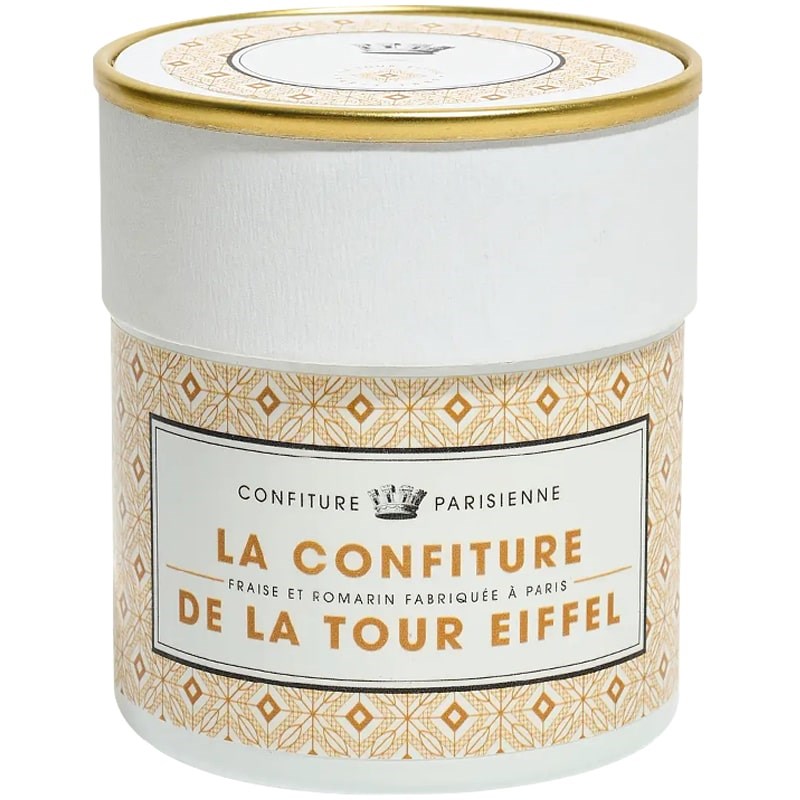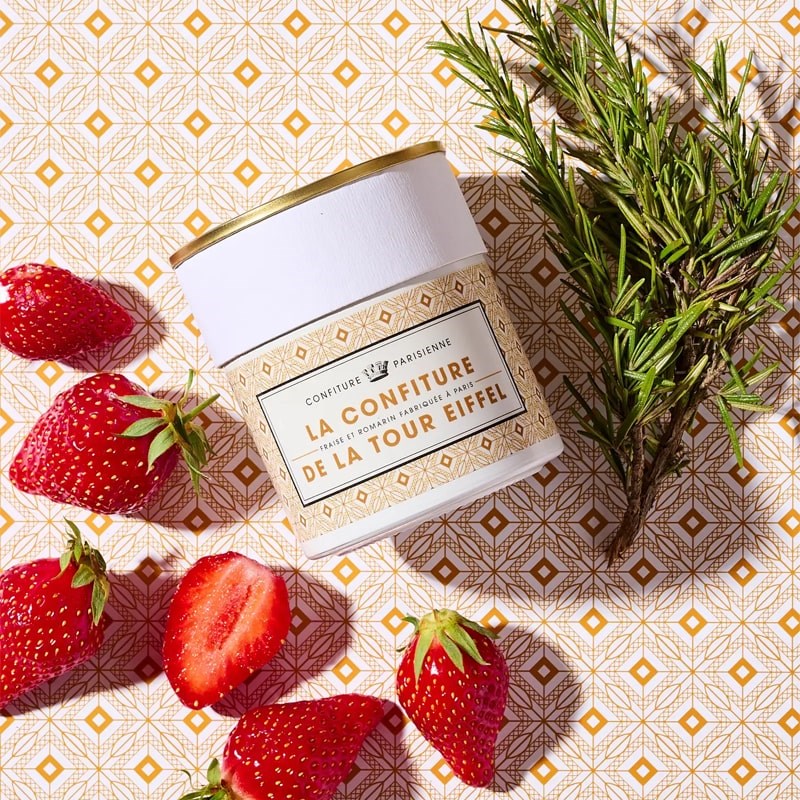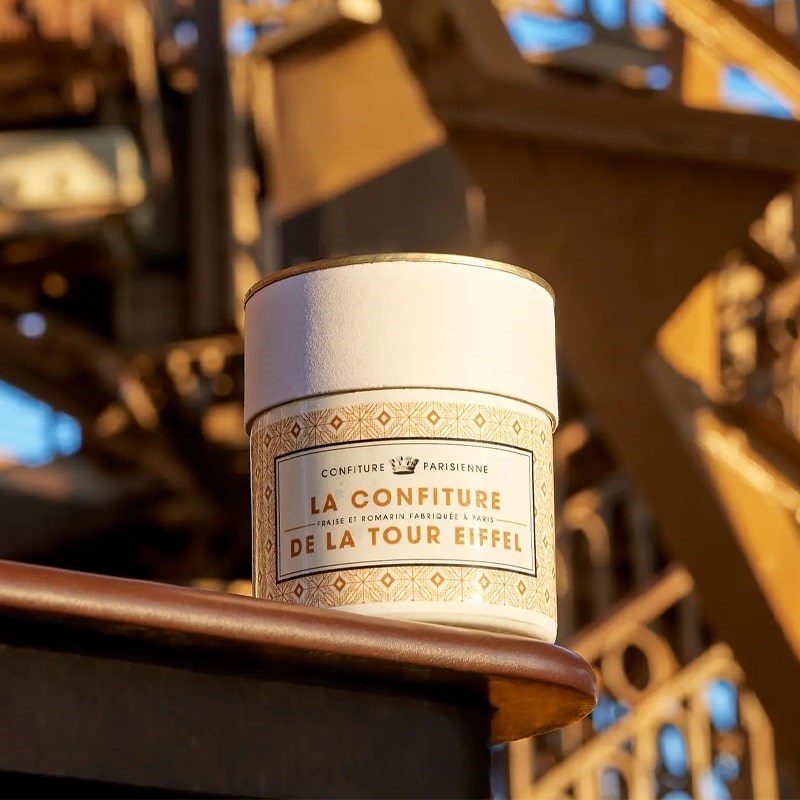


$28.00
La Confiture de la Tour Eiffel
SKU: 48111
Confiture Parisienne just released a new jam, in collaboration with the emblematic Eiffel Tower, the quintessential of French-style elegance.
Inspired by the myriad of rosemary trees close to the Eiffel tower, they created a delicious recipe made of French strawberries, rosemary and olive oil. If this delicate jam cannot bring you to the seventh sky, it will at least bring you to the top of the Iron Lady!
Its sweet smell reminds us of late summer nights in the city of love.
Tasting Tips:
SWEET: On bread, brioche or baguette for a French-style breakfast!
These statements have not been evaluated by the Food and Drug Administration. This product is not intended to diagnose, treat, cure, or prevent any disease.
These statements have not been evaluated by the Food and Drug Administration. This product is not intended to diagnose, treat, cure, or prevent any disease.
Strawberry, Cane Sugar, Lemon, Olive Oil, Rosemary, Citrus Pectin.
Ingredients may be subject to change. The most accurate and up to date product ingredient list can also found on the product packaging.
Allergy Warning: May contain eggs, milk, peanuts, sesame and tree nuts.
Ingredients may be subject to change. The most accurate and up to date product ingredient list can also found on the product packaging.
Allergy Warning: May contain eggs, milk, peanuts, sesame and tree nuts.
In 2015, to revive a Parisian tradition, Nadège Gaultier and Laura Goninet founded Confiture Parisienne with the desire to create exceptional jams using products that are just as exceptional.
Since ancient times, foodies have developed various recipes for preserving fruits by cooking them with wine or honey.
But to taste jams as we know them, you have to wait for the first crusades and the introduction of cane sugar from the Arab world. This luxury food allows the transformation of fruit into jam, only reserved for royal tables. At the beginning of the 19th century, the production of beet sugar democratized this product. In Paris, many jam makers opened their stalls and supplied themselves with fruit from the surrounding orchards.
Since ancient times, foodies have developed various recipes for preserving fruits by cooking them with wine or honey.
But to taste jams as we know them, you have to wait for the first crusades and the introduction of cane sugar from the Arab world. This luxury food allows the transformation of fruit into jam, only reserved for royal tables. At the beginning of the 19th century, the production of beet sugar democratized this product. In Paris, many jam makers opened their stalls and supplied themselves with fruit from the surrounding orchards.





